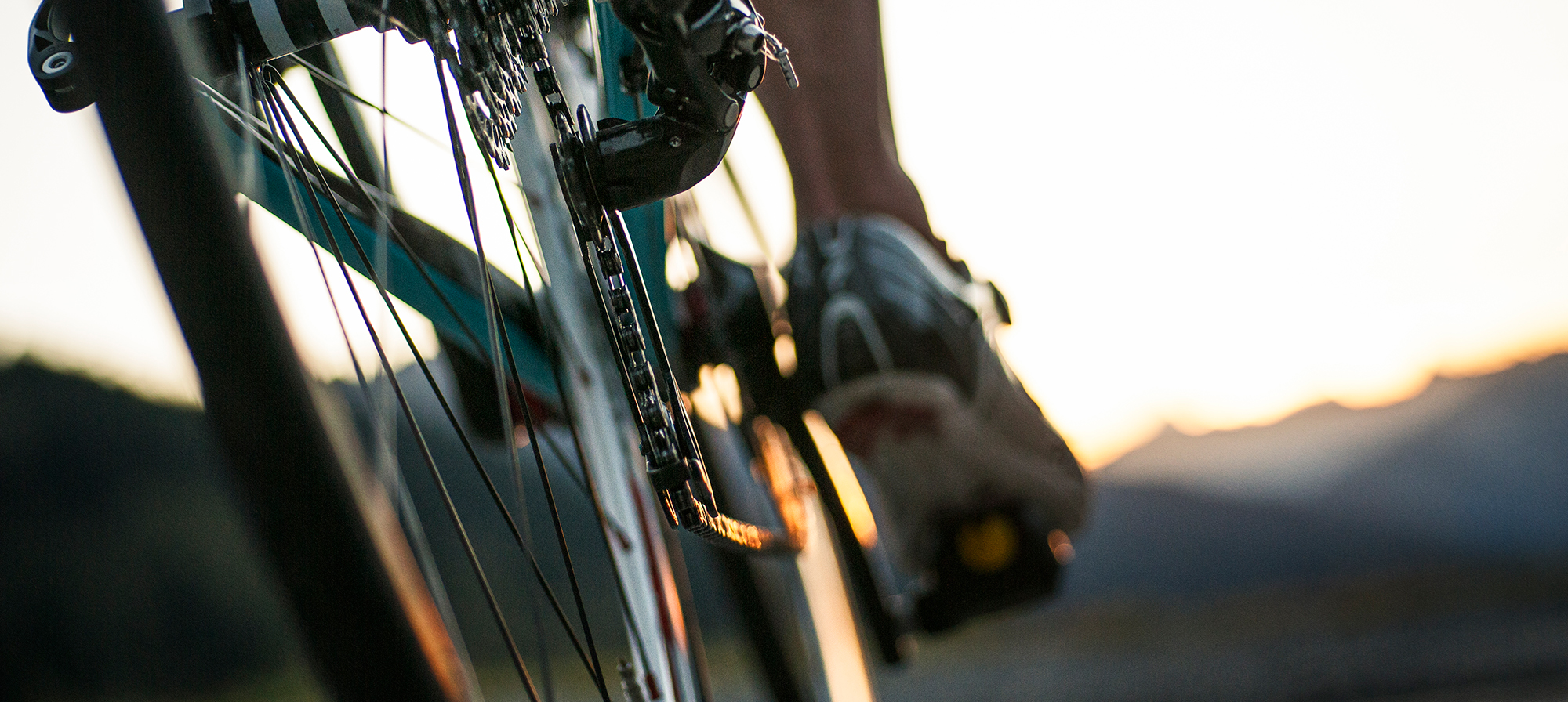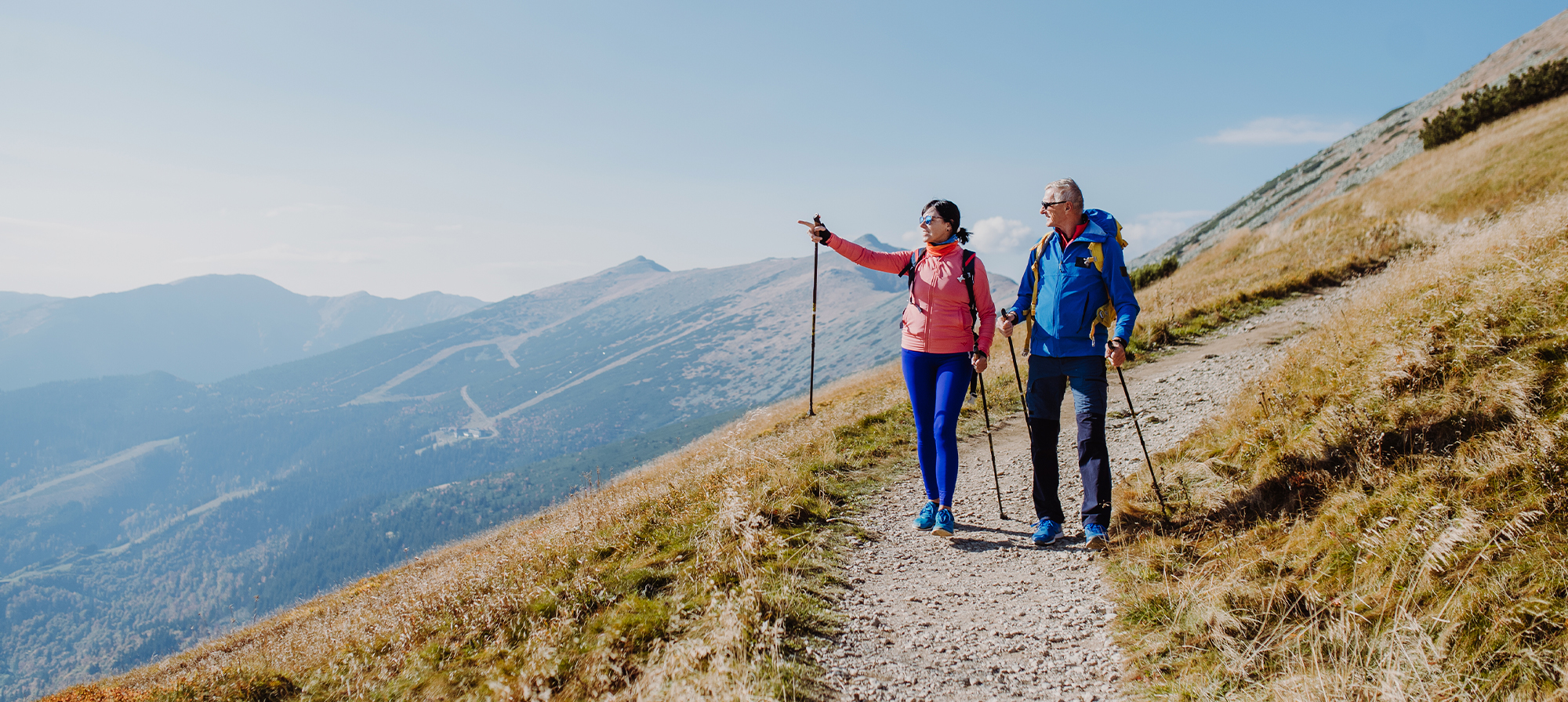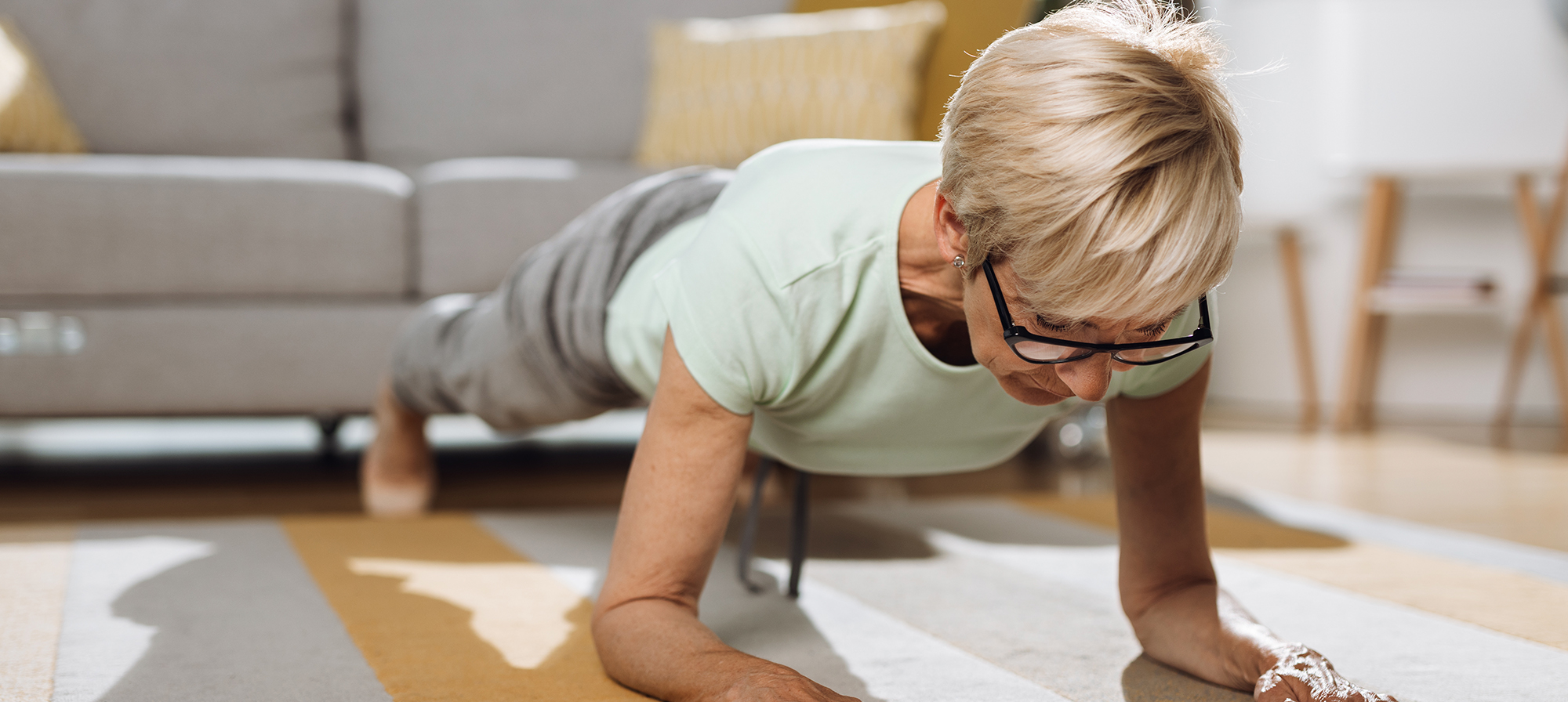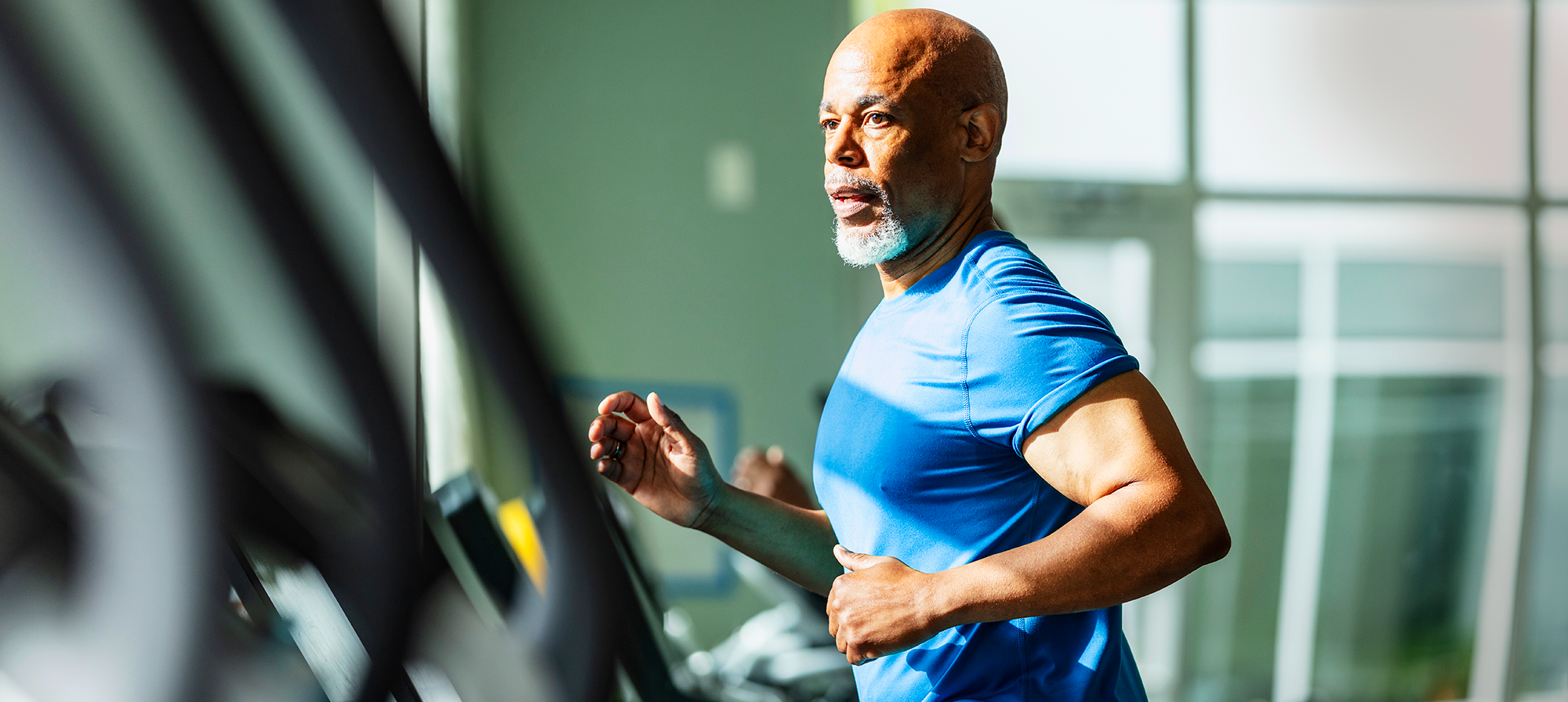"Limitations often feel hard to overcome, but as with cycling up hills, we must face and overcome them, even when they feel like mountains."
Editor’s Note: The following is written by a special guest author, Douglas Metz, DC, Chief Health Services Officer and Executive Vice President at American Specialty Health. With several decades of experience as a doctor of chiropractic medicine and an executive health care administrator, he strives to help people live healthier through quality musculoskeletal care and fitness programs including the Silver&Fit® program. Outside of work, he is a dedicated cyclist, bike tinkerer, and embracer of life. After turning 65 this summer, he completed a grueling 100-mile bike ride to raise money for cancer awareness. This prompted Dr. Metz to reflect on another long journey—his own recovery from a brain tumor. We hope you enjoy his inspirational story.
One hundred miles is a long journey. I discovered this when I participated recently in a 100-mile cycling event called the Tour de Komen—an event to raise awareness and funding for research at the Susan G. Komen Breast Cancer Foundation. I did not take this cycling journey lightly, as I’ve spent the past 20+ years on my own road to recovery from a brain tumor.
But I was riding in this event for 2 brave women who fought cancer: Jan and Jane. Both were fortunate to recover from their breast cancer, thanks to the remarkable treatments made available to them. Jan continues to live a full and vibrant life. My friend Jane, who so valiantly beat breast cancer, recently passed away from pancreatic cancer. I felt honored to ride with each of their names pinned to my jersey and with their memories in my heart.
As a survivor myself, my recovery motto for many years has been, “Living life in a slightly smaller box.” But there on a bike, with Jane and Jan symbolically along for the ride, and with the many others cycling our long road to the finish line, my box didn’t feel quite so small. That was a remarkable realization, considering how far I had come. Let me tell you my story.
Acoustic neuroma: a life-changing diagnosis
In 1996, I was leading a happy, full life. I balanced a career in health care with an active life of road biking, rock climbing, swimming, and skating with my wife, Ruth. But all of that skidded to a halt when I got a life-changing diagnosis: a potentially debilitating acoustic neuroma brain tumor.
I endured 2 brain surgeries to remove the tumor. Then, I embarked on a multi-year odyssey of physical, occupational, and speech therapy, along with emotional recovery. My illness and surgery had left me with facial paralysis and visual impairment. I also had acute tinnitus, deafness in my left ear, and severe balance issues. During those first years, I could barely walk without help from a cane or walking stick.
At age 39, I was starting over. My first steps after surgery were like my first steps as an infant. In the months and years ahead, expert physical and occupational therapists would eventually help me regain my balance. But it was a battle of ups and downs.
Encouraging words, shifting mindset
After recovering from surgery, I recall how dejected and depressed I felt due to my new limitations. Then, I had the good fortune to meet someone who helped change my thinking. While attending a meeting with other brain surgery patients, a kind and understanding lady encouraged me with words that resonated: “You will recover if you just learn to live your life in a slightly smaller box.”
The idea of really living my life again, despite my smaller-box limitations, inspired me to consider trying cycling again. Before the tumor, it had been a passion of mine, and my physician had suggested many times that I reengage in a sport that would challenge my brain to relearn how to balance safely and confidently. The problem was, I would have to strengthen my vestibular system, a part of the inner ear that involves balance. I would also have to overcome my extreme fear of falling.
In the beginning, I rode a sports trike—3 wheels are safer than 2—until I became more confident. The trike also helped me regain my stamina and leg strength. With motivational encouragement from friends and my wife, I graduated to a 2-wheel bike. One Sunday morning, with the encouragement of my son, I took out my old bike and coasted around the driveway—feet on the ground and rolling slowly forward, while balancing on the seat. I made it about 10 feet, but I realized I could hold my balance for a short time! With months of daily practice, I gradually gained balance skills that enabled me to ride to the end of our street and walk my bike back home.
A passion-fueled commitment to recovery
Eventually, over many more months of effort, I was able to ride around the block, and then around town. It wasn’t easy; the process was very slow, and I had a lot of ups and downs. But my passion was reignited. I began watching the Tour de France and other bike races. I became fascinated with the mechanics of bicycles and started tinkering with my bikes to make them better. I sold my old bike and got a fancy one. Now, many years later, I have too many bikes, but that’s what happens to many dedicated cyclists. I’m proud it happened to me.
Over 20+ years, my motivational motto has constantly encouraged me to shift my focus from my limitations to living life to the fullest in a slightly smaller box. I have not only been able to survive my limitations but to thrive in spite of them.
Limitations often feel hard to overcome, but as with cycling up hills, we must face and overcome them, even when they feel like mountains. Those of us with physical disabilities and illnesses face tough limitations weekly, daily, and hourly. A “living life” focus, which for me includes a passion for cycling, has kept me moving forward to the next finish line and the next.
At age 60, I resolved that I would stay fit enough to ride the distance of at least one metric century (62 miles) each year. I have kept that commitment each year, and more. In 2017, I participated in my first 65-mile bike ride and was amazed that I could finish and even do so averaging over 18 miles per hour. In 2020, I rode my first 100-mile bike ride and finished successfully.

Resilient over hills and through valleys
With the 2022 Tour de Komen 100-mile ride from Fishers to Terre Haute Indiana, I was able to complete 100+ miles at an average speed of 20 miles per hour—a new speed record for me! Yes, there were some grueling uphill sections. Sometimes I wondered if I could make the next hill, but then other riders encouraged me along. It reminded me of the many highs and lows of recovering from my brain surgeries and of all the people who helped me along the way.
There will always be highs and lows, hills and valleys. We experience moments when recovery is going well and the ride is easier, and then … hard stuff hits! If we face those hills with courage and hope, we can overcome them.
I am committed to staying fit and in shape as aging catches up with me. I continue to love cycling for its health and motivation. It keeps me young, fit, and moving forward.
For anyone battling an illness or difficulty, I encourage you to find your fitness passion, find your supporters, and set your goal. Keep going to hit your 100, or whatever your goal may be. Just keep cycling forward and living your life to the fullest, no matter the size of your limitations—or your box.
Not a Silver&Fit® member? Learn more about everything the program has to offer, including more helpful healthy living tips like this, here on our website.
This information is not intended to take the place of regular medical care or advice. Please check with your doctor before using this information or beginning any self-care program. Images used for this article do not depict any members of the Silver&Fit Program.
This article was written by Douglas Metz, DC, edited by Lisa Freeman and Candace Hodges, and clinically reviewed by Jaynie Bjornaraa, PhD, MPH, PT, LAT, ATC, CSCS, CSPS, on June 6, 2025.





